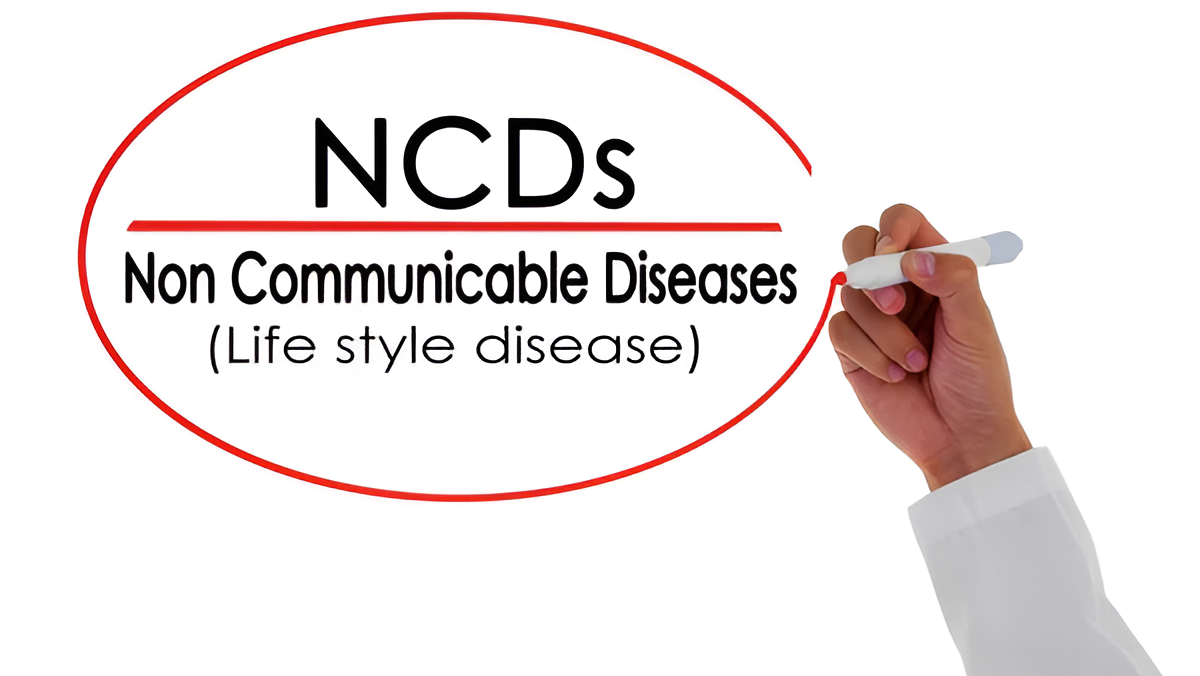
The Silent Epidemic: Understanding How Non-Communicable Diseases in Tanzania are Reshaping Our Lives
New Article Explores the Rising Impact of Non-Communicable Diseases in Tanzania Titled “The Silent Epidemic: Understanding How Non-Communicable Diseases in Tanzania are Reshaping our lives.” by Erick Mahatara and Glory Livingstone.
The Article:
Imagine a group of illnesses that don’t spread from person to person like a cold or flu, yet they are becoming the biggest health challenge in Tanzania and across the world. These are called Non-Communicable Diseases, or NCDs in short. These are a diverse set of conditions that develop over a long period and are not caused by infections.
We are witnessing a silent tide, a gradual but relentless shift in the landscape of human health, where non-communicable diseases (NCDs) are becoming the dominant force shaping lives and destinies.
Think about illnesses like heart problems, cancers, diabetes, and chronic lung diseases have emerged as the leading cause of death and disability worldwide, accounting for an astounding 75% of all deaths. These are all NCDs. Sometimes, mental health conditions and injuries are also included in this group because they share some similar long-term impacts on people’s lives for years and sometimes decades. Initially we once we battled malaria and tuberculosis with urgency and visible campaigns, we now grapple with a silent enemy called NCDs. Yes, it is a Silent tide because it doesn’t present with dramatic fevers or contagious outbreaks.
In Tanzania, just like in many other countries, the number of people affected by NCDs is sadly on the rise. We are now facing the dual challenge of managing old battles against infectious diseases and the new, more complex war of NCDs. These diseases are not strangers to our communities. They are woven into the fabric of our daily lives, reflecting the changing patterns of how we live, work, eat and whether we use tobacco or drink alcohol can significantly increase our chances of developing an NCDs. Sometimes, our family history can also make us more likely to develop certain conditions.
It’s important to understand that NCDs are not just a problem for older people. While they are more common as we age, they can affect people of all ages, even children. The consequences are far reaching, extending beyond individual., Families are burdened with both emotional and financial strain of managing these chronic illnesses, due to high out of pocket payments for NCDs treatment, thus sometimes pushing them into poverty, which ultimately affects country’s economy as when people are sick for a long time, the productivity is more likely to be low due to illness, disability and premature death.

The strong, often bidirectional, relationship between NCDs and mental health disorders like depression and anxiety further complicates the picture, underscoring the necessity of integrated care that addresses both physical and mental well-being. Nevertheless, our healthcare systems are stretched to cope up with rising demand for specialized care.
The Good News About Preventing NCDs
The good news is that many NCDs can be prevented or managed effectively if they are detected early. That’s why there’s a big push in Tanzania to raise awareness about these diseases and encourage people to adopt healthier lifestyles. This includes eating more fruits and vegetables, being physically active every day, avoiding tobacco and excessive alcohol, and going for regular health check-ups.
Across Tanzania, there are efforts underway to tackle NCDs. The government, along with various organizations, is working hard to create programs that help people understand the risks and make healthier choices. You might see campaigns on television or hear messages on the radio talking about the importance of a balanced diet or the dangers of smoking.
Healthcare providers are also being trained to better detect and manage NCDs. Sometimes, NCD care is even being integrated with services for other illnesses, like HIV, to make it easier for people to get the help they need in one place. Community health workers are playing a vital role too, reaching out to people in their neighborhoods to provide information and support.
Final Call to Prioritize Non-Communicable Diseases
The story of NCDs is not just a medical narrative; it’s a story of our society, our choices, and our future. It’s a call to action, a plea for a collective effort to stem this silent tide and reshape the course of our nation’s health. We must recognize the urgency of this issue, not as a distant threat, but as a present reality that demands our immediate attention and sustained commitment.
Ultimately, everyone has a part to play in tackling the challenge of NCDs. By learning about these diseases and making small changes towards a healthier lifestyle, we can all contribute to a healthier future for ourselves, our families, and our nation. Remember, even though these diseases don’t spread like infections, their impact is significant, and taking action now is crucial.
About Erick Mahatara
Erick Mahatara is a medical student at KCMC University and the Minister of Academic Affairs. He focuses on public health advocacy, research, and Community empowerment. His work addresses healthcare access, non-communicable diseases, and health education in underserved communities across Tanzania.
About Glory Livingstone
Glory Livingstone is a student at Muhimbili university of health and allied sciences, a dedicated Mental Health Advocate, the founder and director of Mental Health Africa, and a presenter at Basili TV, where she hosts the Sip and Talk session. Passionate about creating meaningful change, she is committed to raising awareness, breaking stigmas, and fostering conversations around mental health. As a visionary leader, Glory strives to make a lasting impact, empowering individuals and communities across Africa.
Read Further: Redefining Leadership in the Age of NCDs: A Transformative Dialogue.
-
Challenging the Status Quo in Colorectal Cancer 2024
December 6-8, 2024
-
ESMO 2024 Congress
September 13-17, 2024
-
ASCO Annual Meeting
May 30 - June 4, 2024
-
Yvonne Award 2024
May 31, 2024
-
OncoThon 2024, Online
Feb. 15, 2024
-
Global Summit on War & Cancer 2023, Online
Dec. 14-16, 2023
